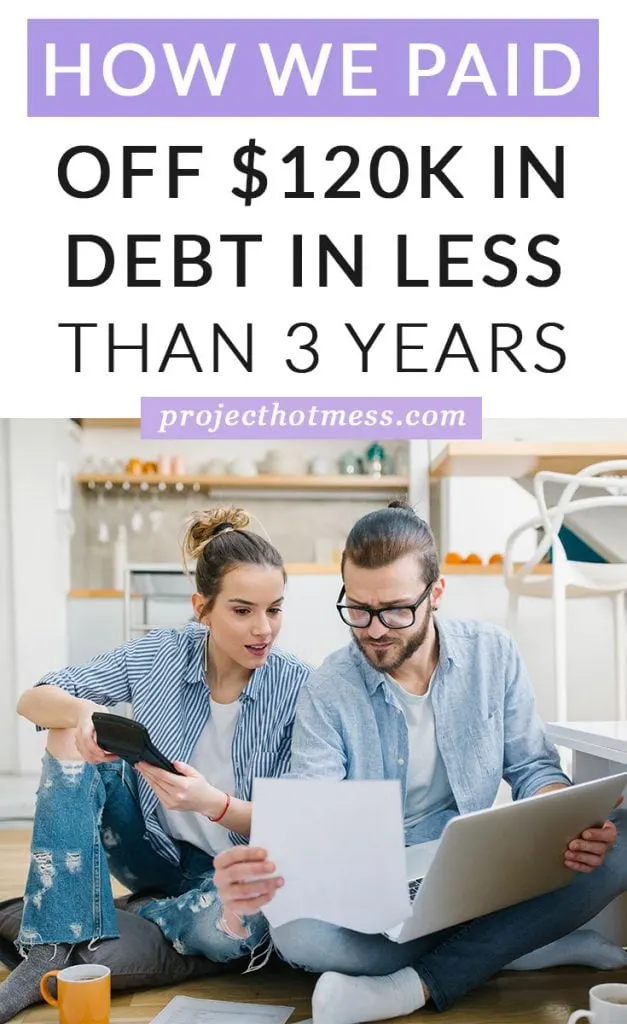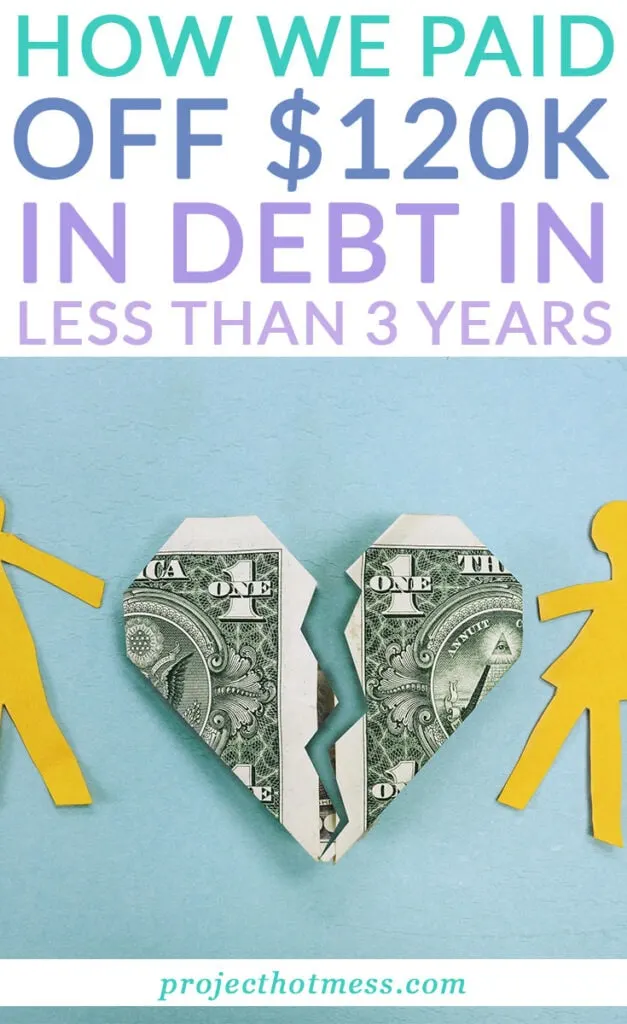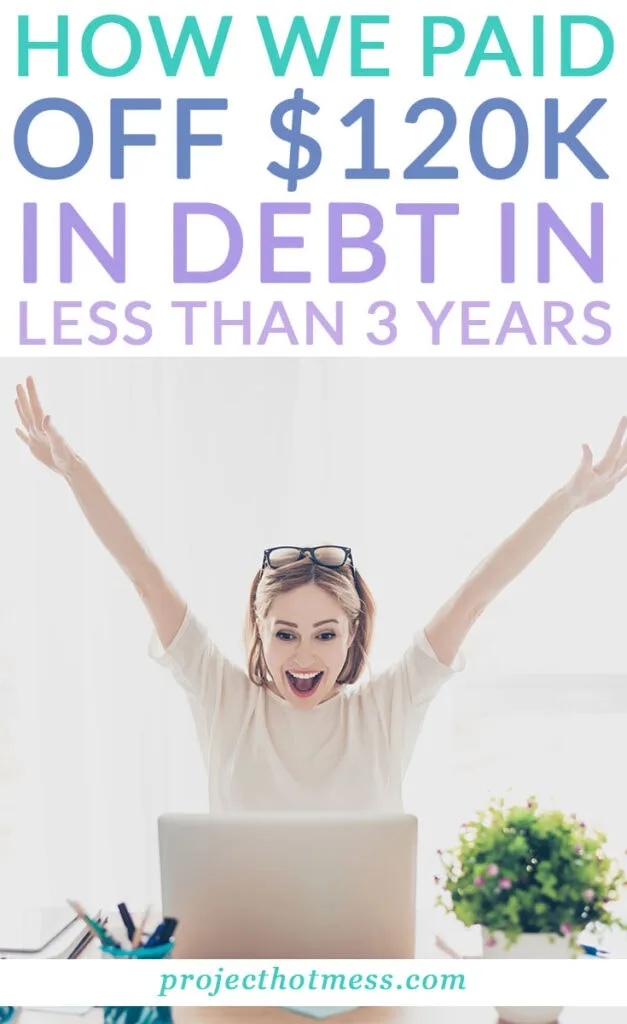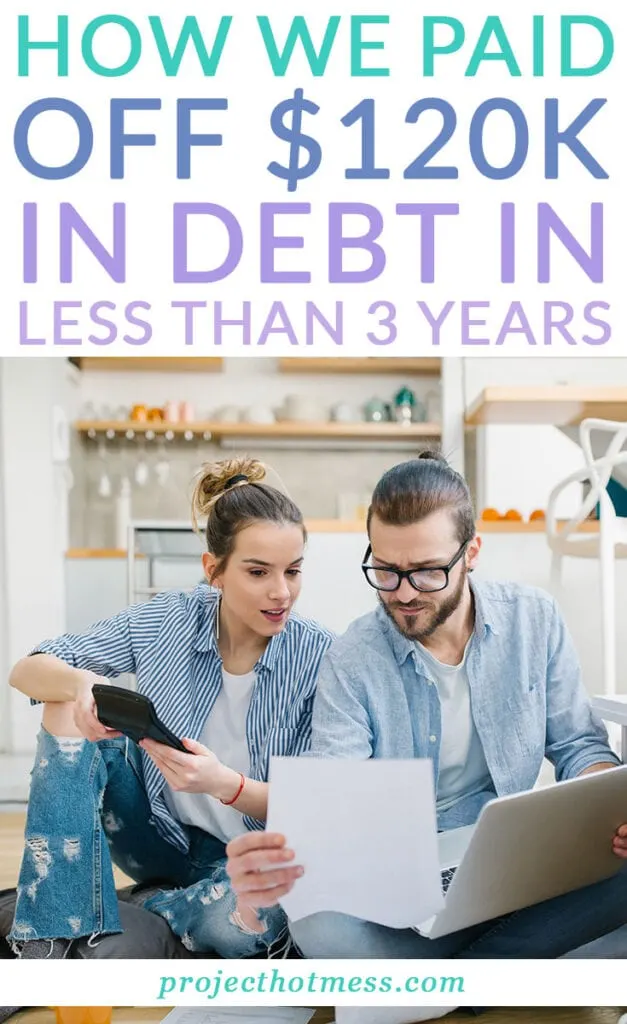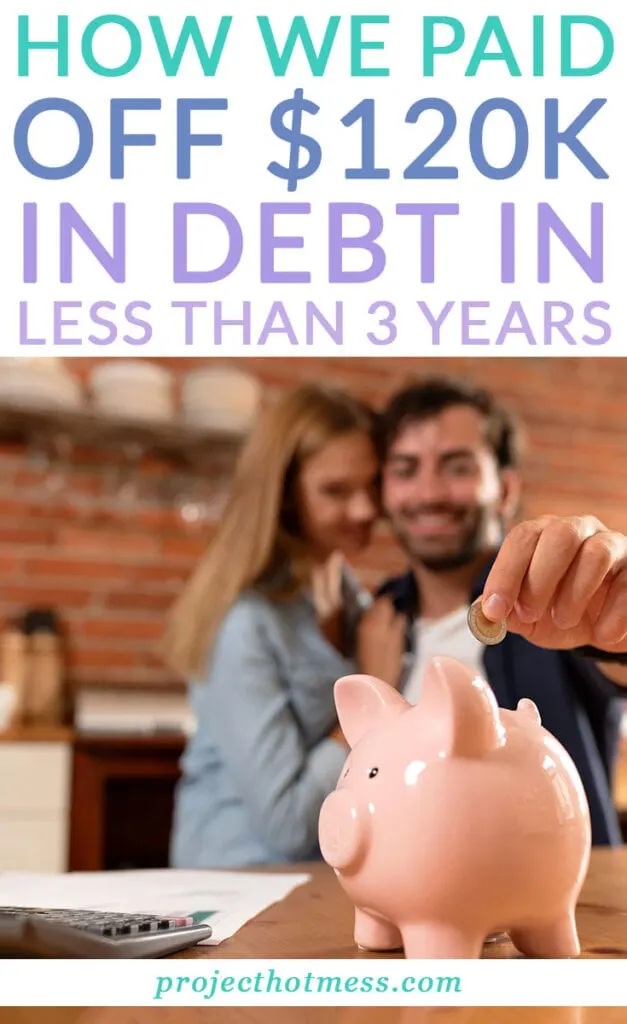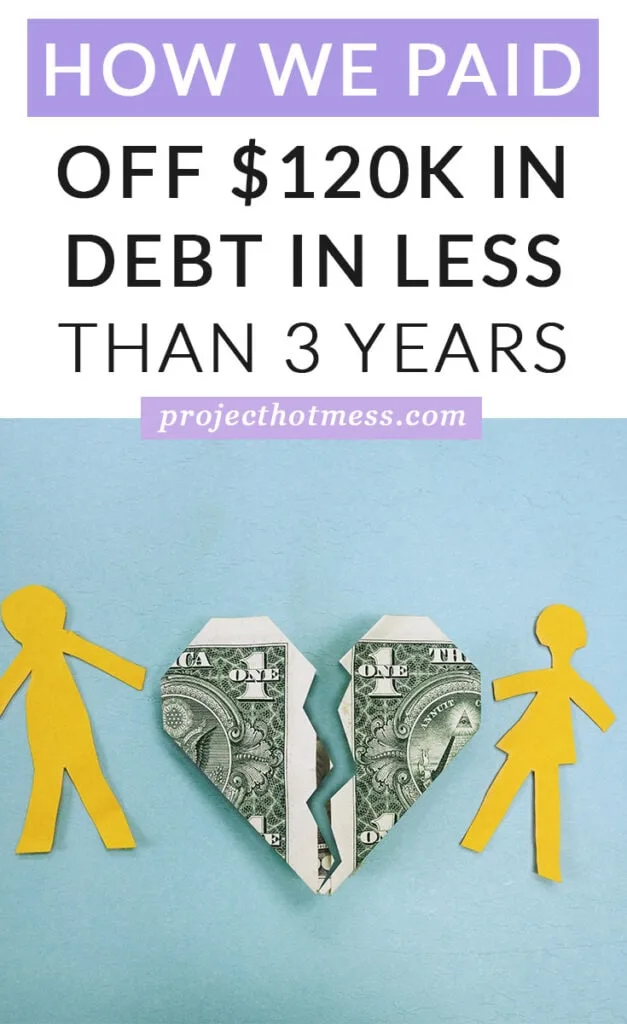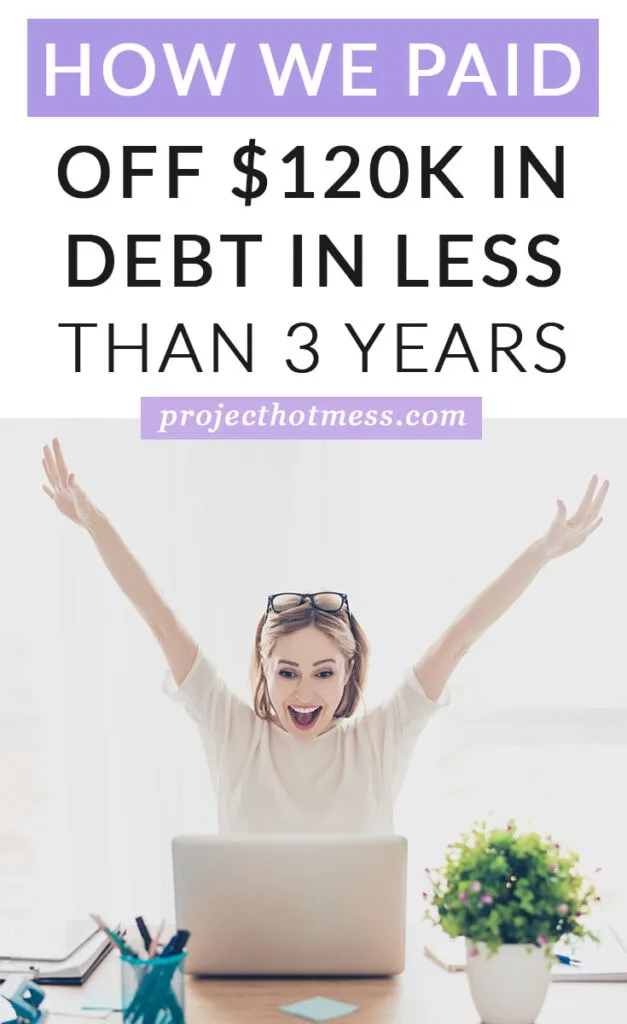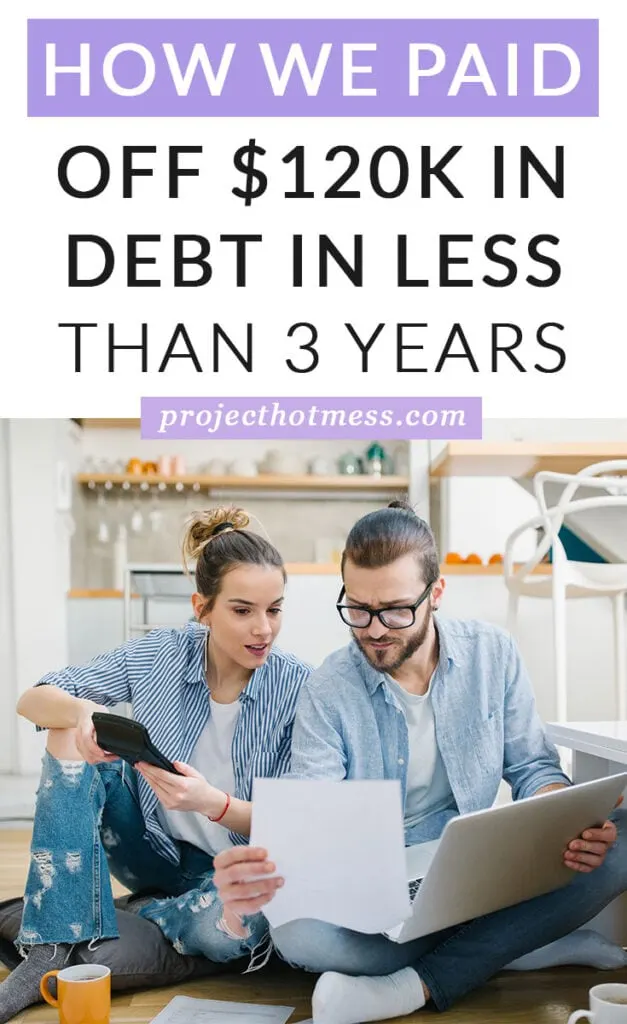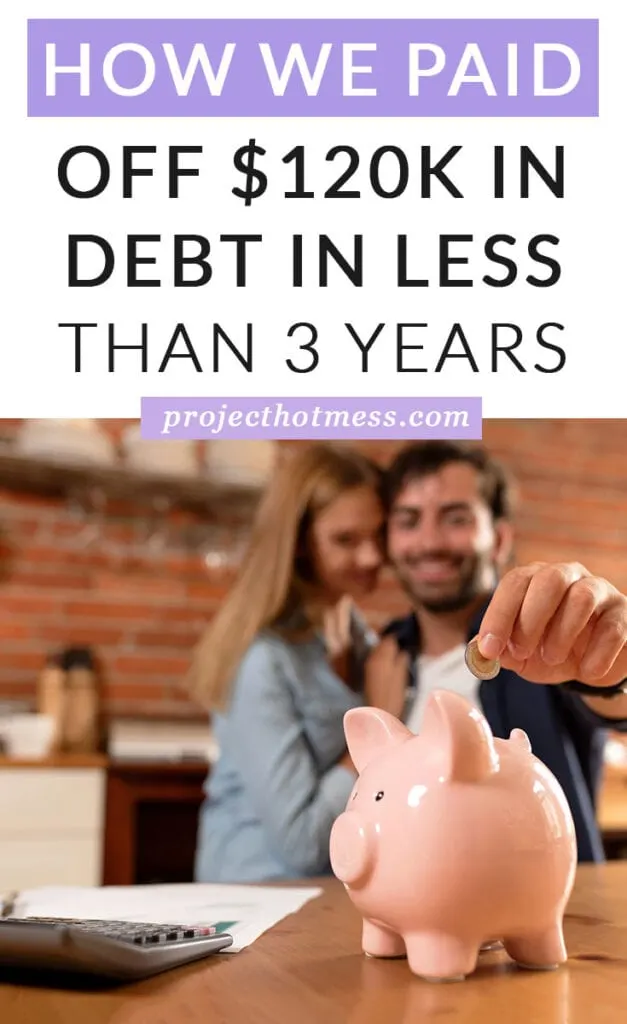I was always of the belief (like many people) that debt is a part of life and it’s part of being an adult. When you want a new car, you get a loan and you pay off the debt. When you turn 18 you get a credit card (because then you’re really an adult) and somehow along the way you manage to get a mortgage and you add to your debt. Totally normal right? What I never wrapped my head around was the idea of actually paying off that debt.
In my mid-twenties I was earning more money than I ever thought I would. I had a good career, worked a ton of overtime and was spending money as fast as I was earning it. I had built my first house at 22 and had a $400k mortgage, sold the house later and only just broke even. I’d never really had any ‘luck’ with money but I’d never thought of educating myself either.
Fast forward a few years, a baby, two divorces (my now husband’s and mine) and not being able to work full time and our personal finance situation was completely different.
I don’t ever recall sitting down and actually working out how much debt we were in. I think we still just ran with the idea that if we didn’t actually look at it, it wasn’t so bad. We also had tens of thousands of dollars worth of legal bills we were paying, which put a massive dent in our savings plan.
It felt like we were working so hard and never getting anywhere and we knew things had to change.

Over the Christmas holidays in 2016 I read a book that, hand on my heart, changed my life. It wasn’t specifically a personal finance book per se, but it made me realise that I didn’t want to keep living my life the way we were living it, and that we deserved better.
I knew if I wanted to really change the way we managed our money I had to learn everything I could about personal finance, so I read every book, every blog post, every article I could get my hands on. I listened to podcasts, watched webinars and became obsessed with personal finance.
I set a goal for us to be debt free by 2018, and to then save a deposit for a house and purchase it by the end of 2018. It seemed like such a huge stretch, so much so, my husband didn’t believe me when I said what I wanted us to achieve. That was okay – I took that as a personal challenge (it’s times like these my stubborn nature really pays off).
By the end of January 2018, we were debt free. And on September 14th 2018 we picked up the keys to our new home.
When I went back over the figures to work out just how much money we managed to pull together I worked out that we had paid off just over $120k in debt in just under 3 years – and that didn’t include the money we saved for the deposit on our home.
I know none of this would have been possible if we didn’t have a plan and a fair amount of stubborn determination. But, there are also a few steps we took to paying off $120k in debt that you can take too in order to help you move towards your debt free goals.
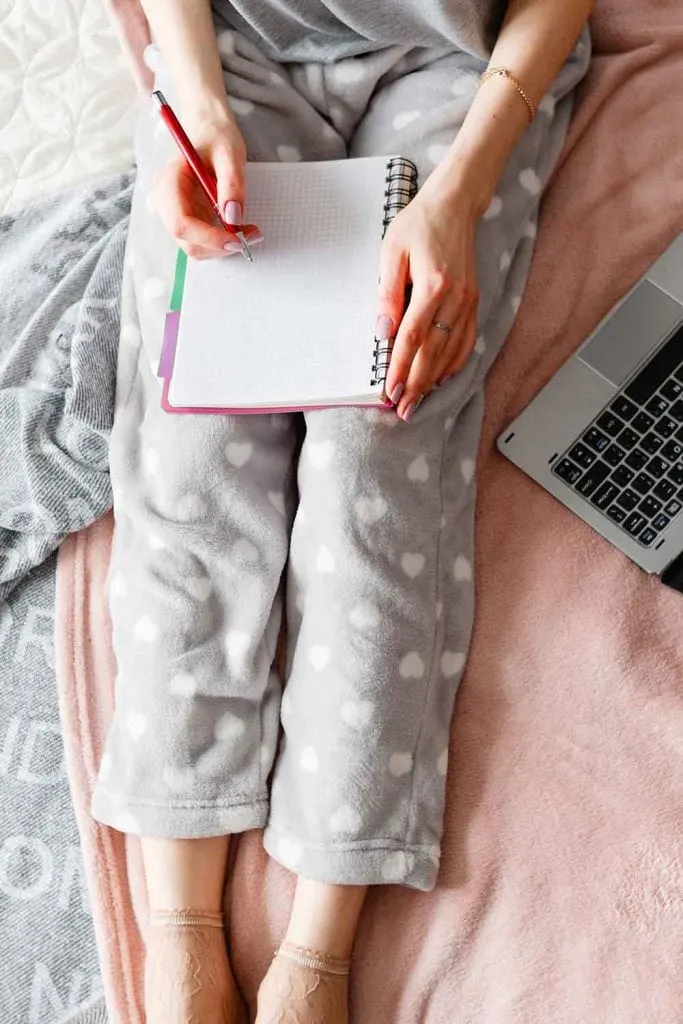
1 – Set Our Goals
We were SO CLEAR on our goals of when we wanted to pay our debt off and when we wanted to buy a house. None of this ‘I want to be debt free’ vague goal setting. We were specific. We wanted to be debt free (goal) by 2018 (timeframe) and we were going to do it by xyz (plan to make it happen).
Not only did we set our goals, but we made our goals part of our everyday life. We had written on a piece of paper what we were working towards and stuck it on the fridge so we could see it every single day. I set my passwords at work to ‘debtfree’ so I could remind myself why I was working so hard.
It was something that we both spoke about and knew we had to both be on board for. If we were going to achieve our goals, it needed to be something we both worked towards. It would never have worked if I was sticking to our budget and my husband was out spending money on whatever it is husbands spend money on.
We used this Financial Goals printable to keep track of our financial goals. You can download it for free here:
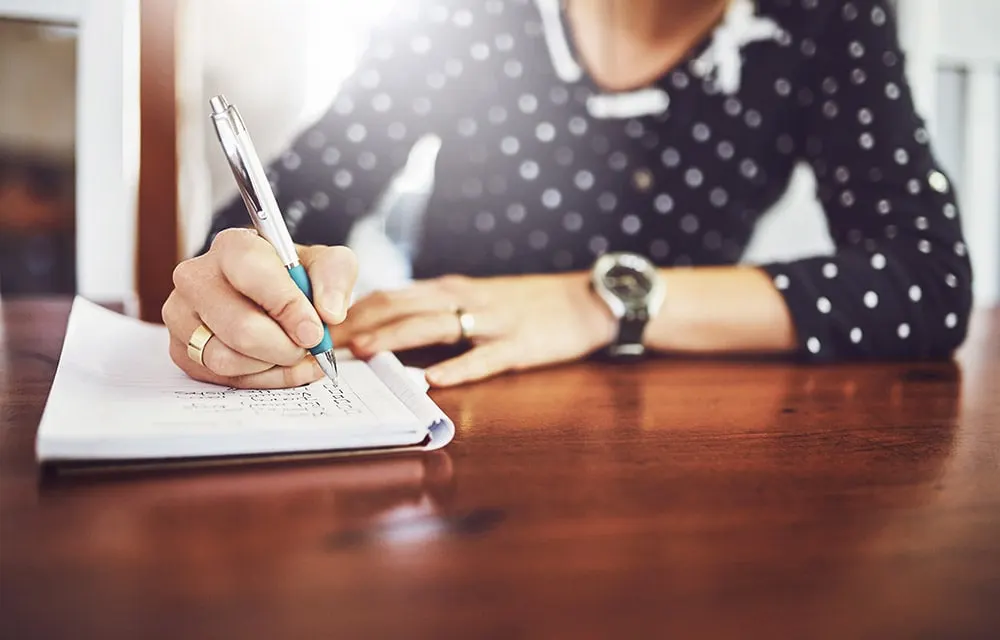
2 – We Got Serious
We weren’t talking about a little $5k credit card here, we knew that if we wanted to get out of debt and buy our house we had to get serious about paying it off. We made a commitment to ourselves and to each other that this was going to be our ‘thing’. The one thing we focused on and the one thing we worked towards achieving.
We didn’t even entertain the idea of any other goals. We didn’t think about the new cars we wanted to buy or the holidays we went on. Every ‘dream’ we spoke about was to do with being debt free and buying our home.
We spoke about money every single day. If you’re wanting to lose weight or start living a healthy lifestyle, you have to work towards it every day, and that’s exactly what we did with our finances.
There was no more hiding, no more ‘oh it will be okay’. We pulled our heads in and got serious about what we wanted to achieve.
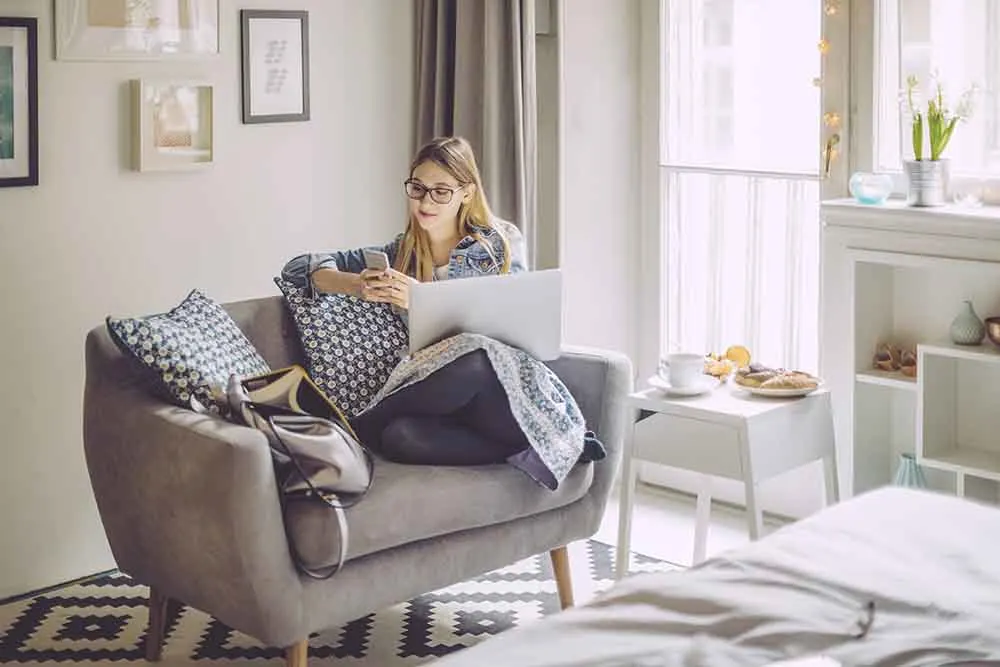
3 – Budget Every Single Pay
To take control of our finances I knew I had to bust through a mindset that I’d been carrying for a long time. I had always believed that budgets were for people on low incomes who needed to be frugal, or for people who couldn’t manage their money properly. Not only did I have to realise that with $120k of debt, I fell into that window of ‘not being able to manage my money’ but budgets are smart!
Think about it like this:
If you were to run a business you would keep track of all the money you spent, all the expenses you had and all of the money you made. You’d run profit and loss reports and you would always aim to be at a profit, because no successful business runs at a loss.
Now apply that to your personal finances.
If you are getting yourself more and more into debt, then you’re running at a loss.
We started to keep track of all of our expenses and budgeted every single pay we received.
Why every single pay? Because not only did our pay change each cycle (thanks shift work) but because our expenses keep changing. We had birthdays to account for, events we had to attend, car services, and all those little things that pop up and potentially derail your budget.
Because we accounted for every expense, we were able to put the maximum amount towards paying down our debt, without having unexpected expenses pop up.
This is the budget template we used – you can download it as a free printable here:

4 – Cut Back On Spending
The fastest way to pay off debt? Earn more money (see #7) and spend less money.
We downloaded our transactions from our bank accounts and went over the last two months worth of spending so we could see exactly where our money was going. Then we got cutting.
Streaming services, subscriptions we weren’t using and gym memberships (when we weren’t even going to the gym) were the first things to go, and I even committed to not buying any new clothes for a whole year.
Cutting back on spending is an extension of getting serious about paying down your debt. The point is, you can’t keep spending money the way you’ve been spending money and expect to be able to pay off your debt too.
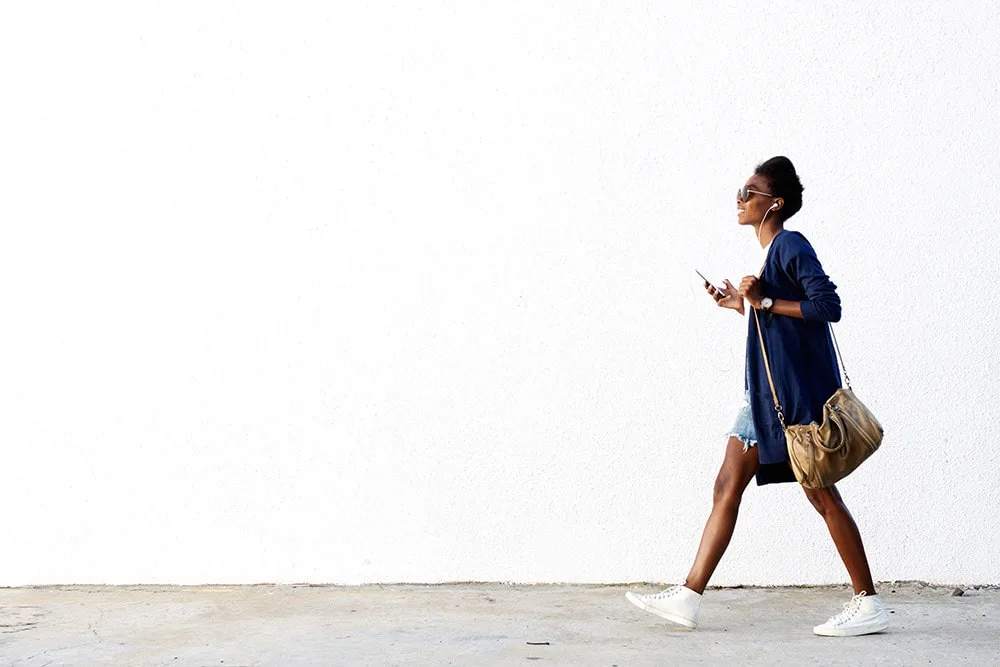
5 – Sold All Unnecessary Items
When I started thinking more about our personal finances, I started realising we had been spending money on things we honestly didn’t need. So I started to declutter. Not just once but over and over again.
We went through all of our things we didn’t want or need anymore and with the items that were in good condition, we listed them on our local buy, swap and sell Facebook group. To my surprise, we made $2000 in a month!
But here’s where things got serious…
We sold our second car and we sold our camper trailer. We were so serious about becoming debt free that we reevaluated our day to day lives to make this work. We did a ‘trial run’ of having just one car for a month before committing to selling our second car and it was doable. It wasn’t easy and it required another level of organising ourselves, but we made it work.
We also hadn’t used our camper trailer in a while as we had a new baby, and we had decided we wouldn’t be going on many holidays because we wanted to limit our spending. We had taken out a personal loan to purchase the camper trailer, and we were able to sell it for a little more than what we owed so it was a great decision.
We continued to sell things on Facebook (and we even gave a few things away) because the more we decluttered, the more we realised we didn’t need all the ‘stuff’.
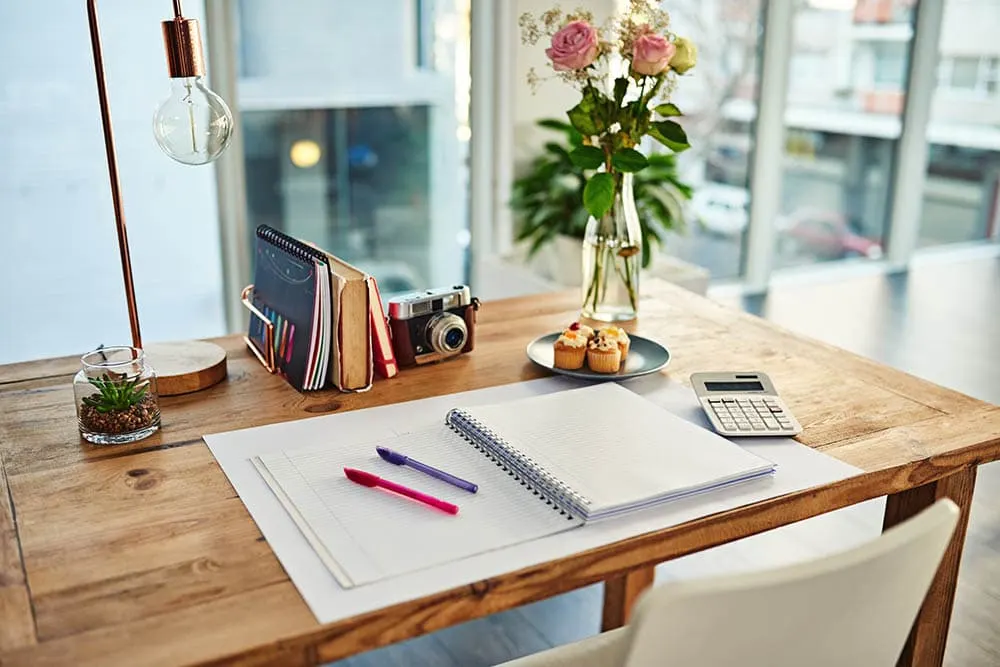
6 – Reviewed Expenses
We had been paying the same insurance company for our contents insurance for 3 years and never questioned it. We did a few comparisons and were able to save a few hundred dollars each year on our premiums. We were used to paying the money anyway, so that extra savings just went straight off our debt.
We also switched banks which was a bit of a hassle at the time, but we are so glad we did it. We were paying up to $50 a month in bank fees and charges, so we switched to banks with no fees and no charges for the features we needed. Our new bank also had extra savings features (like automatically rounding up your payments to the nearest $5 and putting the extra into a separate account) that helped us make many, many small payments off our debts.
When you’re trying to pay down debt, every little bit counts. A few dollars here and there can add up to a lot of money over time.
One of my most favorite tools for managing and tracking my money is PocketSmith. It syncs all of our finances, including our loans and assets – which means it shows us our overall wealth. It’s also great for finding and tracking changes in our spending (so we can budget accordingly). I’ve tried so many different apps and this is the only one that I loved. PocketSmith is so easy to use and my husband loves how he can see how much we have left in our budget at anytime.

7 – Hustled Hard
Remember how I said the fastest way to pay down your debt was to earn more money and spend less money? Well, this is where the ‘earn more money’ part comes into play.
So many people get so stuck on their set income that they don’t realise the potential to make more money. Thankfully, I had already created a ‘side hustle’ which was my blog. I hadn’t really been focusing enough on it so I decided that if I was going to make more money, I needed to dedicate more time and focus on the business.
Once I started focusing more, my income grew. I had always convinced myself I didn’t have enough time, but that was just an excuse. I started getting up at 5am, working during naptimes, staying up late at night to get business work done and it paid off.
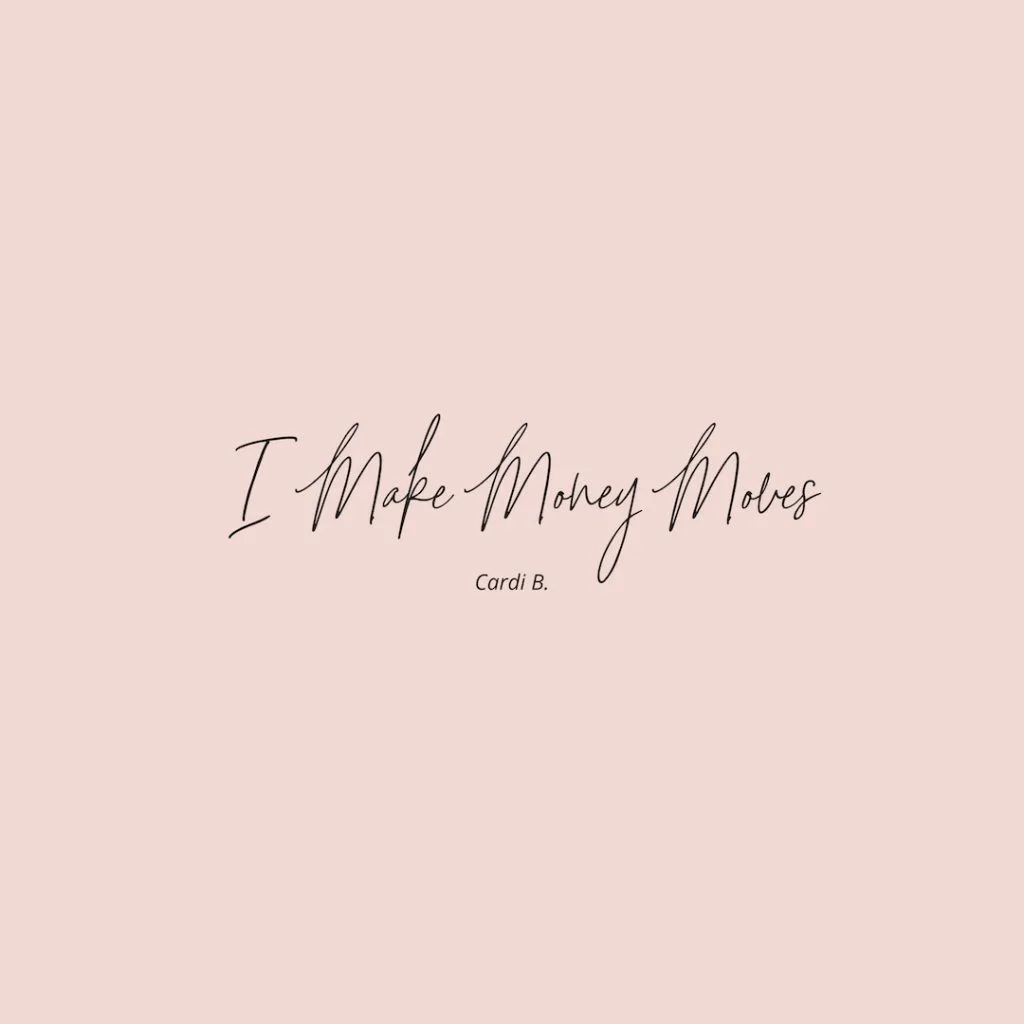
Anyone can start a side hustle, you don’t have to have an existing blog or business. Just take a look at the skills you have and what you’re good at, and work out how you can turn them into a service for others. It doesn’t mean you have to go out and get another job – there are always people willing to pay others to do tasks they either can’t, won’t, or don’t want to do themselves.
We also started taking more overtime at our day jobs. Overtime was lucrative as the income was fairly high and we liked our jobs. It was a really simple way to add a big chunk to our income. We made sure that any ‘extra’ we earnt from overtime went straight towards debt payments.
Whether you’re in a ‘small’ or ‘large’ amount of debt, there are ways you can work towards paying it down. We are so proud of ourselves for managing to pay down our debt while still enjoying our life and reaching our goals.
